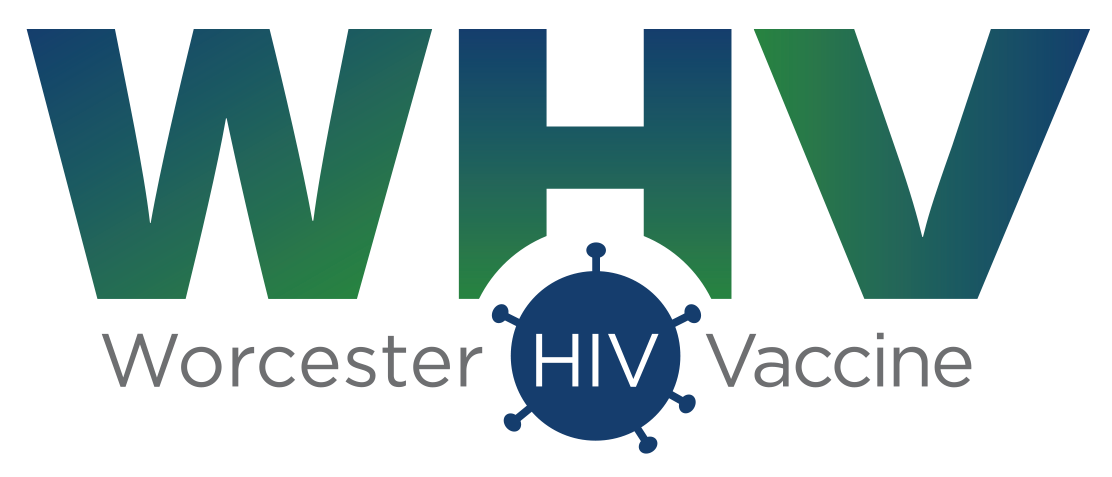As the world commemorates World AIDS Day this week and grapples with a second pandemic in COVID-19, Worcester HIV Vaccine (WHV) reaffirms its commitment to developing a preventive vaccine to reduce HIV infections around the world as it advances its candidate vaccine toward more safety and efficacy trials.
“The progress we have made this year is remarkable, especially considering the challenges posed by the COVID-19 pandemic,” said Yegor Voronin, Ph.D., chief operating officer of WHV. “The fact that we stand poised to advance our HIV vaccine candidate to additional safety and efficacy testing is a testament to our commitment to developing a vaccine to protect against one of the world’s most elusive viruses.”
WHV’s investigational HIV vaccine candidate, PDPHV, is completing safety and immunogenicity testing in a Phase I clinical trial (HVTN 124) sponsored by the National Institute of Allergy and Infectious Diseases (NIAID), part of the National Institutes of Health, and conducted by the NIAID-funded HIV Vaccine Trials Network (HVTN). If proven immunogenic, PDPHV would be the first and only vaccine formulation that includes viral Env antigens from all four major circulating HIV subtypes to advance to safety and efficacy trials in humans. Immunogenicity results are being analyzed and will be shared in early 2021.
Earlier this year, WHV announced plans to investigate the dynamics of the immune responses seen in the HVTN124 trial, and conduct additional testing to better assess the breadth and potency of antibodies elicited by the PDPHV vaccine candidate, which will be critical to advancing vaccine manufacturing, and to planning further clinical trials.
PDPHV is a nucleic acid vaccine composed of five DNA plasmids and four gp120 recombinant proteins. The DNA vaccine is used to prime the immune system to receive a boost of HIV proteins, which stimulate the body to produce antibodies against HIV. WHV researchers have optimized the manufacturing of the DNA component of PDPHV in the last two years and are continuing to ensure the gp120 proteins remain stable throughout the development process, all while setting a clear path toward regulatory review. WHV is expected to file a new Investigational New Drug Application (IND) to the U.S. Food and Drug Administration (FDA) for PDPHV before the end of 2020 in partnership with Target Health, LLC, a New York-based CRO with many years of regulatory experience.
“The work we are doing to understand the types of immune responses induced by PDPHV is not only important to the HIV field, but is yielding important insights for the development of nucleic acid vaccines, which are also being tested for the novel SARS CoV-2 virus,” said Shan Lu, M.D., Ph.D., professor of Medicine at UMMS, who created PDPHV and who is also conducting COVID-19 vaccine research. “We know that science—and an effective vaccine—requires us to persist, to test every concept, to be innovative and fearless in our discovery efforts, to find new ways of working together, and to persevere. The recent progress of mRNA-based COVID-19 vaccines, which is another type of nucleic acid vaccine similar to DNA vaccines, just proved that this technology platform has very promising potential.”
Much of WHV’s progress in early research and development has been the result of collaborations within UMass Medical School (UMMS). In the last two decades, Dr. Lu’s group at UMMS received more than $50 million to oversee the development and manufacturing of PDPHV, which allowed WHV to license PDPHV from UMMS in early 2018 for its further development. WHV is also establishing broad collaboration with academic and industry partners including the Infectious Disease Research Institute (IDRI) in Seattle, Washington, which developed and manufactured the adjuvant used to stimulate responses to the protein component of the PDPHV vaccine. This World AIDS Day, we thank our HIV researchers, many who are now working on COVID-19 and are bringing valuable lessons to accelerate the discovery of preventive measures and treatments for COVID-19 while continuing to set the stage for an HIV vaccine.

